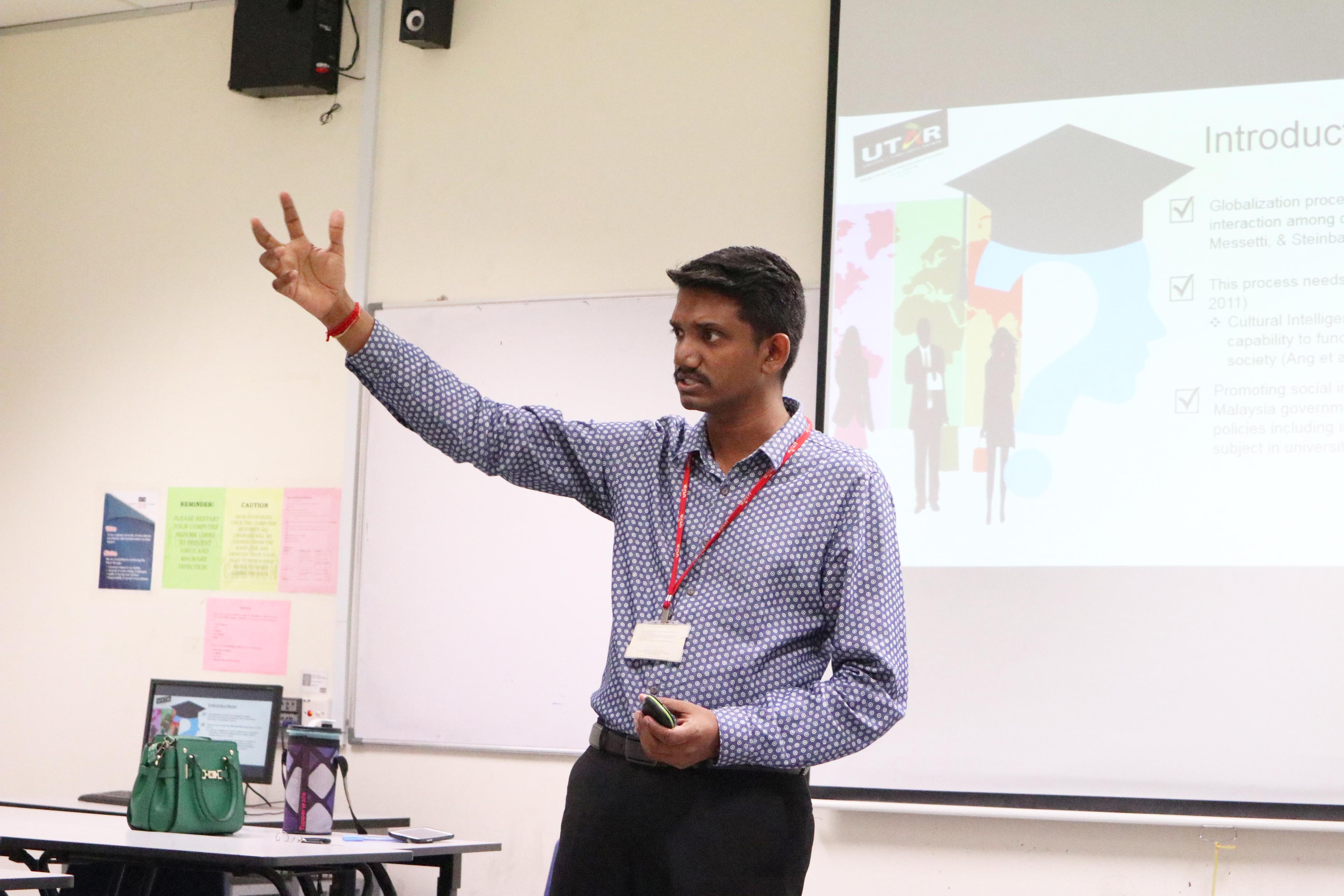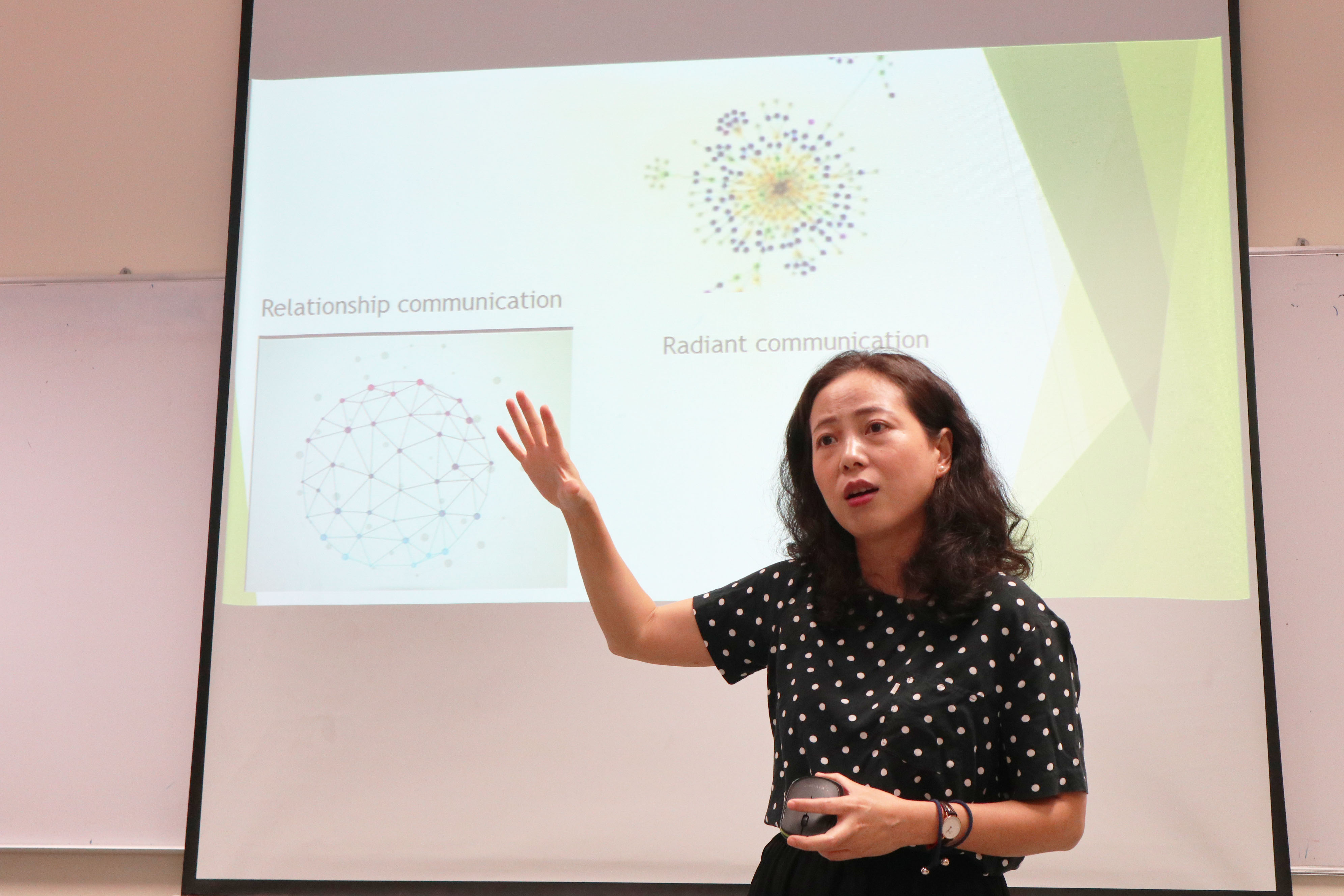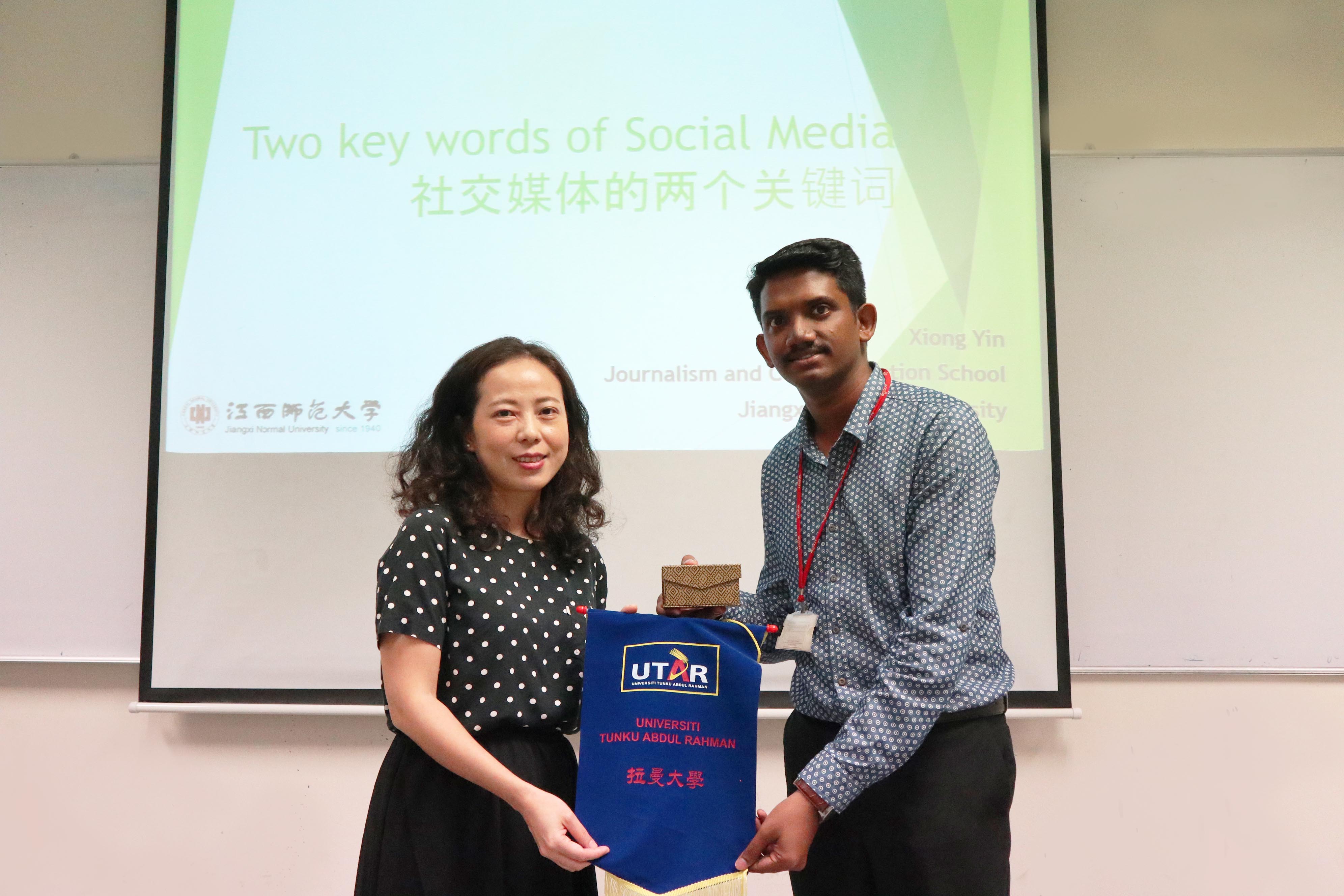
A talk titled “Connecting Culture and Social Media in Malaysia and China” was co-organised by Faculty of Arts and Social Science (FAS) and Tun Tan Cheng Lock Centre for Social and Policy Studies at UTARKampar Campus on 14 August 2019.
The talk aimed at discussing the importance of equipping graduates with intercultural sensitivity skills, as well as to educate participants on the key features of social media. The invited speakers were Department of Public Relations Head S Maartandan Suppiah and the lecturer of Journalism and Communication School, Jianxi Normal University Assoc Prof Dr Xiong Yin.

S Maartandan explaining intercultural sensitivity and employability
The first speaker, S Maartandan enlightened participants on intercultural sensitivity and employability. He explained that cultural intelligence is one’s capability to function effectively in different cultural society. He shared findings from his research that stated most undergraduates possess an intermediate level of cultural intelligence. Findings from his research also suggested that students should show more interest to be adaptive and communicate effectively in a diverse environment in order to be employed. Other findings also showed that students are unable to be adaptive because of poor communication skills, which hinders their intercultural sensitivity, further affecting their employability.
Participants also noted that cultural intelligence plays an important role in ensuring a positive working environment. They were advised by S Maartandan to be equipped with high intercultural sensitivity skills, and improve their communication skills, especially in a multicultural environment in order to perform well at work.

Dr Xiong Yin explaining the power of relationship communication of social media
Meanwhile, the session with Dr Xiong Yin saw participants enlightened with her sharing on social media. She highlighted to participants the key word of social media, which is double presence. By that, she meant that users are living in reality while also heavily engaged (living) in the online world. “It is very common now to see people going about with their daily lives but their faces are actually glued to the screen of their phones. Even the picture on the slide showed a lady walking her dog while holding the phone up to her face. This is double presence – present in two worlds,” explained Dr Xiong Yin.
In explaining the reasons for people’s addiction to social media, she listed massive content and exchange of knowledge and interaction as the few main reasons. She explained that user-generated content attracts more people to be addicted to social media as it allows and encourages unlimited grassroots creativity. However, Dr Xiong also explained that social media is unable to penetrate the mass market by solely relying on its massive content. In contrast, the relationship communication of social media that spreads information within one’s online social networks, which is then further disseminated by the recipients to their respective networks is the key factor to the success of many social media, especially in China. She hoped that by understanding these key features of social media, participants will be able to equip themselves with relevant skills.
“I understand that each country uses social media differently and while Malaysians use platforms, namely Facebook and Instagram more, people in China are more interested in using Tik Tok and Wechat. I learnt that they use social media because of the ability to influence people virtually.
The talk was indeed informative and as advised by the speakers, I need to be more responsive and adaptable,” said Bachelor of Communication (Hons) Public Relations (PR) student Janice Dr Cruz.
“I agree that students need to be more responsive and adaptable because these two key aspects are important for job seeking. It was a good talk having received such information and some insights into the trend and demands of the working world,” said PR student Lee Ei Kei.
Meanwhile PR student Wilbur Kenneth Kwok Zoen Ting said that the talk was a good platform to understand the usage of social media in China as compared to Malaysia’s approach. He also mentioned that the places were different but interaction on social media has the ability to unite people from all across the world.

S Maartandan (right) presenting the token of appreciation to Dr Xiong Yin
© 2019 UNIVERSITI TUNKU ABDUL RAHMAN DU012(A).
Wholly owned by UTAR Education Foundation Co. No. 578227-M LEGAL STATEMENT TERM OF USAGE PRIVACY NOTICE